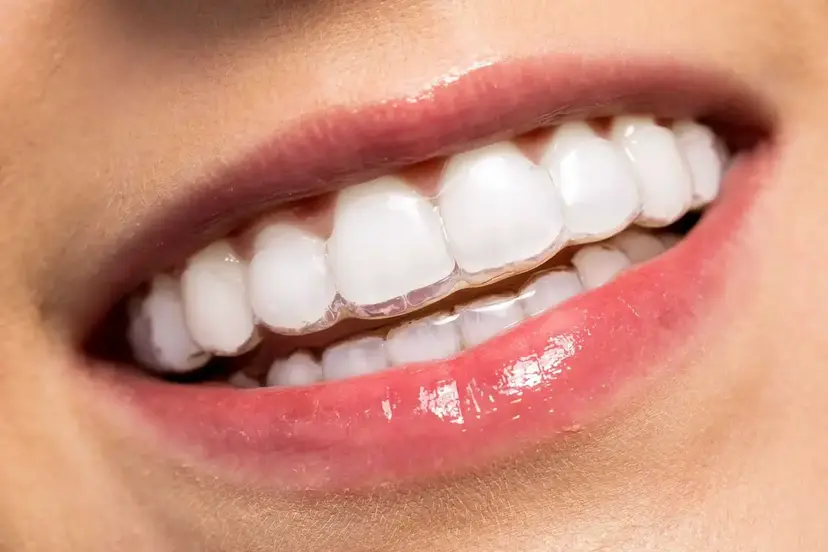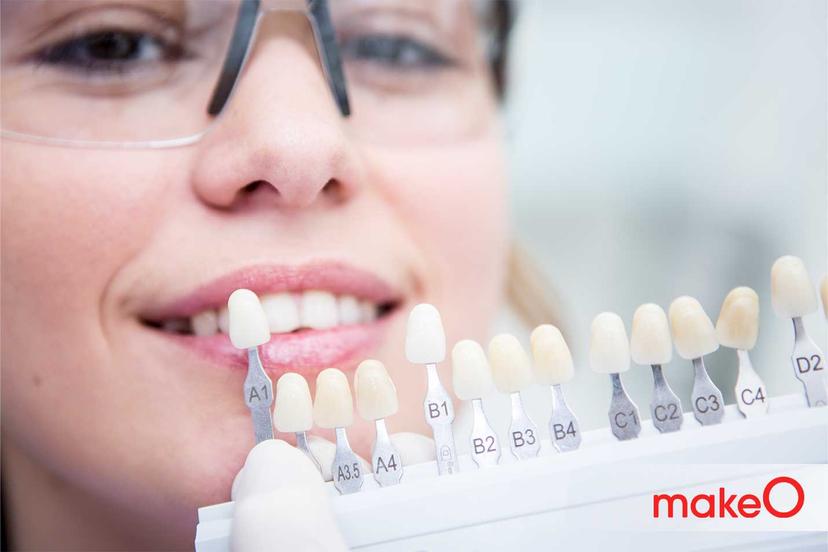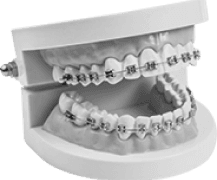MakeO blog
If you have gaps between your teeth or chipped or cracked teeth and wish to wear your perfect smile again, you probably have explored several cosmetic dental procedures that can help you. In this article, let us introduce you to a highly effective, minimally invasive and almost pain-free way of fixing your teeth. Dental bonding is becoming increasingly popular as one of the best ways to improve the appearance of teeth. Let us understand how dental bonding actually works and what are its advantages and limitations.
What is Dental Bonding?
Dental bonding is the process of using tooth-coloured material to repair issues like chipped or cracked teeth, gaps between the teeth or to change the shape and colour of the teeth. To perform this procedure, the tooth’s surface is roughened so the resin can stick to it. A conditioned liquid is then applied to the affected area to support the generation of bonding agents. Now a tooth-coloured resin is used to fill the gap or bond a chipped tooth into a desired shape. A special light is used to help the material bond perfectly and there you have it! Perfectly, bright and shiny pearls that you can flaunt.
Advantages and disadvantages of dental bonding
Advantages of Dental Bonding
1. Versatility
Dental bonding is used to treat a variety of dental issues like teeth discolouration, chipped or cracked teeth and cosmetic gaps among others.
2. Cost-effective
In comparison with other dental procedures like porcelain veneers and dental crowns, the dental bonding price is way more affordable, making it everyone’s cup of tea.
3. Minimal downtime
Dental bonding does not require you to stay in the doctor’s clinic for long after the treatment. The entire procedure can be completed within a single dentist’s visit. You can simply go back to your routine right after the treatment. Moreover, performing the treatment itself is a relatively quick procedure.
4. Minimally invasive
There is no need for anaesthesia with teeth bonding as it is a minimally invasive procedure. It involves minimal removal of the outer enamel, making it almost pain-free. If in case you change your mind about the bonding, you can easily have them removed without much hassle.
Disadvantages of Dental Bonding
1. Not stain-resistant
While teeth bonding can achieve excellent results immediately, they do tend to absorb stains over time. They might not be the best option for you if you wish to have bright pearly teeth in the long term. In that case, other solutions like crowns or veneers might be your best bet.
2. Not long-lasting
Dental bonding needs to be replaced every 10 years as the bonding materials are not as strong as dental veneers or crowns.
3. Food restrictions
After you have performed dental bonding on your teeth, you will be asked to avoid hard-to-chew foods. You will also have to refrain from habits like nail biting or chewing pens and ice.
Oral Care With makeO toothsi
If you have gaps between your teeth or discoloured teeth and are looking for a better way than teeth bonding to fix these issues, makeO toothsi might just be the right choice for you. makeO is India’s most trusted and fastest-growing clinical beauty platform that uses futuristic technology to help you get a perfect smile. We use minimally invasive technology backed by experts to fix a wide range of dental issues.
Clear Aligners by makeO toothsi are simple, clear trays that sit on your teeth to gradually shift them into their desired place. You can address issues like gaps between the teeth, crowded teeth or bad bites with these clear aligners. We also offer teeth whitening kits that anyone can use at home independently and shift the colour of their teeth by at least 3-4 shades. Wish to know more about our oral care products and services? Head on to the makeO toothsi website and connect with our professionals today.
FAQs
How long does dental bonding last?
Dental bonding is not permanent and can last anywhere between 4-8 years. It needs to be performed again after the effects of the first bonding wear.
Is dental bonding reversible?
Yes. It is easy to remove your dental bonding if you change your mind about it. Unlike other dental procedures, dental bonding is easily reversible.
What is the average cost of dental bonding in India?
The dental bonding price is cheaper than other dental procedures that achieve similar results. Depending on the severity of your issue and the dentist you choose to work with, dental bonding costs anywhere between ₹3,000 to ₹30,000.
Can you eat hard foods with dental bonds?
Unfortunately, dental bonding is not as strong as other dental procedures like crowns or veneers. They cannot withstand chewing hard foods. So, you might want to talk to your dentist about your dietary restrictions before opting for dental bonding.
related categories
Related articles

Types of Braces: Removable vs Fixed Braces, Which is Right For You?

This Diwali, Smile Bright With makeO Teeth Whitening Kit

Dr. Pravin Shetty: Pioneer in Lingual Orthodontics & Innovative Smile Solutions
How do I Know I’m the Right Candidate for makeO toothsi Teeth Aligners?

